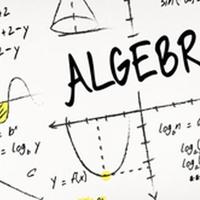Chapter 7, How to Choose Our Hypotheses, part 2
Kapitel 7, Wie wir unsere Hypothesen auswählen, Teil 2
Chapitre 7, Comment choisir nos hypothèses, partie 2
Capítulo 7, Como escolher nossas hipóteses, parte 2
Глава 7, Как выбирать гипотезы, часть 2
7\. Bölüm, Hipotezlerimizi Nasıl Seçeriz, 2. Kısım
But when we come to the end of our arithmetic we do not content ourselves with guesses; we proceed to algebra–that is to say, to dealing logically with the fact of our own ignorance.
Mas quando chegamos ao fim de nossa aritmética, não nos contentamos com suposições; procedemos à álgebra – isto é, a lidar logicamente com o fato de nossa própria ignorância.
Ama aritmetiğimizin sonuna geldiğimizde kendimizi tahminlerle yetinmeyiz; cebire, yani kendi cehaletimiz olgusuyla mantıksal olarak ilgilenmeye geçiyoruz.
One of the data that we do know is that all great nerve-centres affect each other.
Um dos dados que sabemos é que todos os grandes centros nervosos afetam uns aos outros.
Bildiğimiz verilerden biri, tüm büyük sinir merkezlerinin birbirini etkilediğidir.
Mis-use of any one tends more or less to produce distorted action in the others.
Mis|||||||||||||||
O mau uso de qualquer um tende mais ou menos a produzir ação distorcida nos outros.
Herhangi birinin yanlış kullanımı, diğerlerinde az ya da çok çarpık eylem üretme eğilimindedir.
And, quite apart from that consideration, any energetic and continued action of one tends more or less to suppress the action of the others, for the time being, by drawing the blood from the organs which are the seat of them; and then, when normal circulation is restored, to produce for a time an unusual sensitiveness in the others.
|||||||||||||tend|||||||||||||||||||||||||||||||||||||||||||||
||||||||||||||||||suppress||||||||||||||||||||||||||||||||||||||||
E, independentemente dessa consideração, qualquer ação enérgica e contínua de um tende mais ou menos a suprimir a ação dos outros, por enquanto, tirando o sangue dos órgãos que são a sede deles; e então, quando a circulação normal é restaurada, produzir por um tempo uma sensibilidade incomum nos outros.
Ve bu düşünceden tamamen ayrı olarak, birinin herhangi bir enerjik ve sürekli eylemi, diğerlerinin eylemlerini, onların oturduğu organlardan kan çekerek, şu an için, az ya da çok bastırma eğilimindedir; ve sonra, normal dolaşım geri geldiğinde, diğerlerinde bir süre için olağandışı bir hassasiyet üretmek.
而且,除了这种考虑之外,一个人的任何持续的积极行动或多或少都倾向于暂时通过从作为其所在地的器官中抽血来抑制另一个人的行动。然后,当恢复正常的血液循环时,在其他血液中会暂时产生异常的敏感性。
There is nothing abnormal or wrong in this, provided that we recognise the fact, and, as I said, are careful to deal logically with the fact of our own ignorance whenever anything happens either to our eyes or to our imagination which we do not at the moment quite understand.
||||||||as long as|||||||||||||||||||||||||||||||||||||||||
Não há nada de anormal ou errado nisso, desde que reconheçamos o fato e, como eu disse, tenhamos o cuidado de lidar logicamente com o fato de nossa própria ignorância sempre que algo acontecer aos nossos olhos ou à nossa imaginação que não percebemos. o momento bastante entender.
Gerçeği kabul etmemiz ve daha önce de söylediğim gibi gözümüze ya da hayal gücümüze şu an farkında olmadığımız bir şey olduğunda kendi cehaletimiz gerçeğiyle mantıklı bir şekilde ilgilenmeye dikkat etmemiz koşuluyla bunda anormal ya da yanlış bir şey yoktur. an oldukça anlamak.
If you ever arrive at using your imagination strongly and rightly in the construction of any sort of algebra, you may find that it affects to some extent your sense-organs.
||||||||||||||||||||||||||||||sensory organs
Se você chegar a usar sua imaginação forte e corretamente na construção de qualquer tipo de álgebra, poderá descobrir que ela afeta até certo ponto seus órgãos dos sentidos.
Herhangi bir tür cebir oluştururken hayal gücünüzü güçlü ve doğru bir şekilde kullanmayı başarırsanız, bunun bir dereceye kadar duyu organlarınızı etkilediğini görebilirsiniz.
It certainly will affect them more or less whether you know it or not.
Certamente os afetará mais ou menos, quer você saiba disso ou não.
Bilseniz de bilmeseniz de kesinlikle onları az çok etkileyecektir.
What I mean is that it may affect them in a way that forces you to be aware of the fact.
|||est|||||||||||||||||
O que quero dizer é que isso pode afetá-los de uma forma que o obrigue a estar ciente do fato.
Demek istediğim, sizi gerçeğin farkında olmaya zorlayacak şekilde onları etkileyebilir.
If ever this should happen, take it quite naturally; and as long as you are too young to understand how it happens, just say to yourself, “This is x, one of the things that I do not know, and perhaps shall know some day if I go on quietly acting in accordance with strict logic, and remembering my own ignorance.”
If||||||||||||||||||||||||||This|||||||||||||||||||||||||||||||||
Se isso acontecer, leve-o com bastante naturalidade; e enquanto você for jovem demais para entender como isso acontece, apenas diga a si mesmo: “Isso é x, uma das coisas que eu não sei, e talvez saberei algum dia se eu continuar agindo silenciosamente de acordo com regras estritas. lógica e lembrando-me de minha própria ignorância.”

